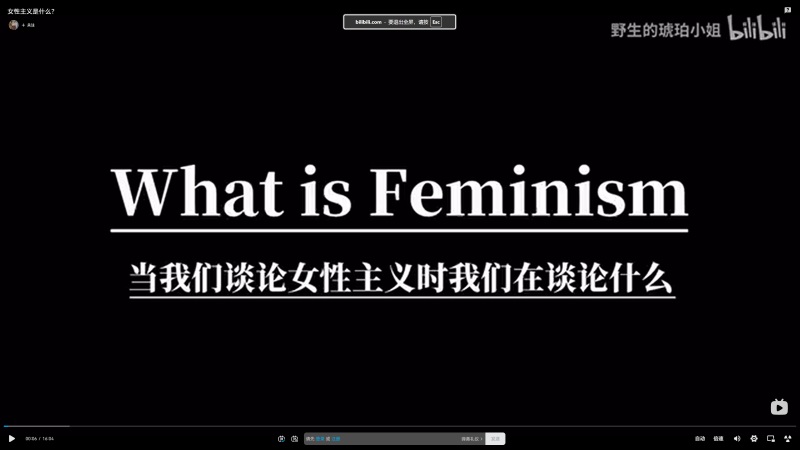2010s Pop Feminism: A Painful Look Back
Video Description
In this video, Lily Alexandre provides a retrospective analysis of pop feminism, examining its rise, critiques, and eventual decline. The video contrasts the movement's focus on awareness with the need for a more systemic, materialist approach to social change.
Related Topics
This video analyzes the rise, criticisms, and decline of pop feminism in the 2010s. It argues that while the movement successfully introduced a new generation to feminism, its focus on online awareness and individual identity ultimately failed to achieve substantial political change. The speaker advocates for a future of feminism that prioritizes systemic change and collective action.
Core Arguments
The Rise of Pop Feminism
The video’s creator, who was a high school student in 2014, describes feeling a sense of optimism about the movement’s potential. They highlight how online platforms like Jezebel and Everyday Feminism made feminism relatable through content about pop culture [05:25]. This era popularized new vocabulary like “mansplaining” and “rape culture,” providing women with new ways to talk about sexism in their daily lives [07:11]. The core belief was that cultural change could be achieved by raising awareness and shifting the conversation [12:27].
Critiques of Pop Feminism
A significant critique is that the mainstream feminist internet was largely white-dominated, sidelining the work of women of color who focused on more urgent, material issues [09:44]. The video also argues that the movement’s goals were influenced by its financial model, which relied on shareable, viral content, diluting its message [14:22]. Furthermore, feminism was often reframed as a personal identity rather than a political movement, with a focus on individual lifestyle choices and “girl boss” feminism that benefited a small group of privileged women [28:47]. The speaker cites the 2017 Women’s March as an example of the movement’s ineffectiveness, as it failed to translate public anger into meaningful long-term change [43:02].
The Path Forward
The video concludes that a more effective approach for the future of feminism involves focusing on “problems that we can actually target” by analyzing societal systems that enable oppression [56:48]. The speaker suggests that many contemporary feminists are integrating their work into other social justice movements, focusing on organizing and mutual aid to fight for a more just world [01:04:01]. http://googleusercontent.com/youtube_content/4
Video Info
Comments & Discussion
Discuss this video with other viewers
Join the Discussion
Discuss this video with other viewers
Loading comments...


